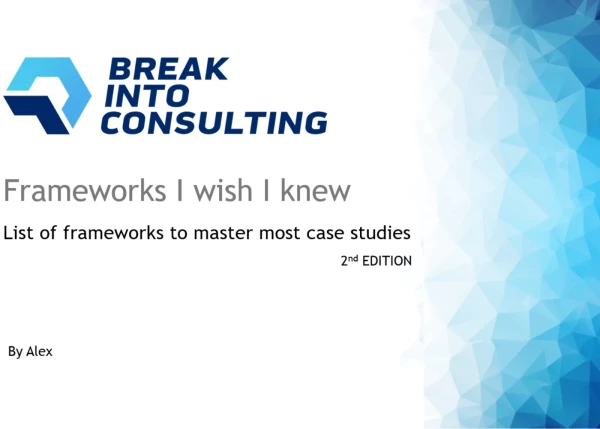I have practised around 50 cases up to now, and have an understanding of different case types and framework. However, today I did a case asking about "what is the marketing strategy of launching a product in a new market", a case which I failed to structure properly. I used a common market entry framework, but realized some part is irrelevant to the case, since the case purely focuses on marketing strategy.
Here's my 2 questions:
1. Given that this is a very specific case asking about marketing strategy, can I use more traditional marketing framework such as 4p or STP? I understand many expert says these kinds of common framework is not recommended, but it seems like a good fit to this case. Can I still use 4p or STP framework to solve this case, by making the issue tree sound more "customized"?
2. I was very unfamiliar with the 4p, STP, or other marketing theories and frameworks. So when I did the case, I was thinking more of Victor Cheng's framework (client / company / competition / product). How should I improve the performance of a specific type of case (ex: marketing strategy, or distribution strategy) that might require some basic knowledge, while I am not familiar with this kind of case? Is it still possible to solve the case by using "customized issue tree" and "common business sense"?
Thank you so much!


